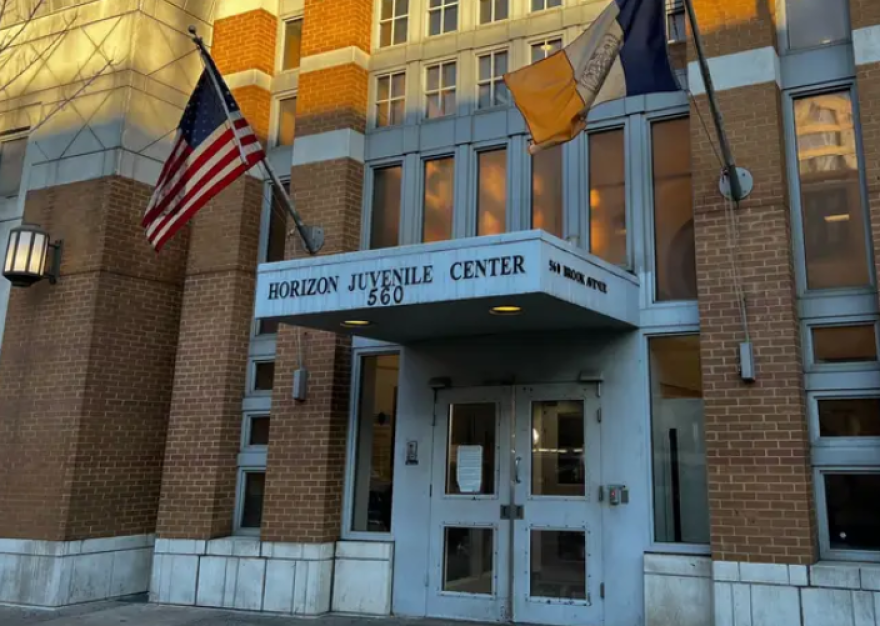Jermayne Timmons was 15 years old when he fired a gun at a group of rival teens in Albany. The bullet missed the teens but fatally struck 10-year-old Kathina Thomas as she played outside her nearby home.
Timmons was sentenced to 15 years to life in prison for the 2008 killing and, two years ago, he was released after his first parole hearing.
“I was young and dumb,” he later told WTEN. Timmons earned a bachelor’s degree and got married while in prison, and told the station his release was “another starting point.”
Timmons, who didn’t return a call seeking comment, was one of the hundreds of so-called “juvenile lifers” in state prisons, according to lawyers who in 2018 brought a class action case on their behalf.
The prisoners were convicted of major crimes they committed before reaching the age of legal adulthood and received sentences whose maximum term was up to life imprisonment. But unlike Timmons, these offenders are often kept behind bars for far longer than the minimum sentence meted out by a judge. Those parole decisions are unfair and violate recent U.S. Supreme Court rulings that life sentences for youthful offenders, the lawsuit argues.
In response, the New York State Department of Corrections and Community Supervision recently proposed a new rule that would require the Board of Parole to give “great weight” to characteristics that might contribute to a youthful offense. That includes immaturity, abusive environments and the ongoing development of the adolescent brain.
Republicans in Albany said the proposal is another step that favors criminals over victims. Criminal justice issues have been a major focus of state and local elections in recent years, after a spike in crime that coincided with both the Covid-19 pandemic and the implementation of Democrat-backed changes to the state’s bail and trial procedure laws.
“Now is not the time to adopt a policy which seeks to negate criminal culpability for violent offenders who have already demonstrated a willingness to endanger their communities and inflict serious harm on others,” state Sen. Rob Rolison, a Republican from Poughkeepsie, wrote in a letter. “The Parole Board must instead prioritize public safety and ensure that dangerous violent criminals, regardless of age, are not released back into the community.”
Parole Board Chair Darryl Towns declined to comment. The corrections department wrote that the proposed rule would make parole decisions for juvenile lifers “clearer and more transparent.”
State law says parole should be granted if there’s a reasonable probability that an offender “will live and remain at liberty without violating the law,” but also that “release is not incompatible with the welfare of society and will not so deprecate the seriousness of his crime as to undermine respect for law.”
Existing board regulations also say parole decisions for youthful offenders should consider “diminished culpability of youth” and “growth and maturity since the time of the commitment offense.”
The department wrote that the proposed regulations will also help settle the ongoing federal lawsuit. U.S. District Court Judge Vincent Briccetti ruled in 2019 that New York’s current parole process for juvenile-lifers violates the U.S. Constitution’s prohibition against cruel and unusual punishment.
Issa Kohler-Hausmann, a Yale Law School professor and one of the attorneys in the case, said the severity of the crime is already addressed in a judge’s sentence.
“The job of the board of parole is not to take a second bite at the sentencing apple,” she said. “The entire point is that you're supposed to evaluate the parole criteria through the lens of, and in light of the fact that, they were a child. They're not two separate things.”
Avery Gilbert, another lawyer in the case, said she would like to see the proposed regulations extend to crimes committed by people up to their early 20s. That would be consistent with scientific research on when brains fully develop, she said.
State Sen. Julia Salazar, a Brooklyn Democrat, sponsors a bill that would broadly change the parole standard so that all incarcerated people are released unless “there is a current and unreasonable risk the individual will violate the law.”
She welcomed the proposed regulations.
“The state of brain development, childhood trauma, and adverse childhood experiences all significantly impact children’s decision-making skills and should absolutely be taken into great consideration when it comes to granting parole,” said Salazar, who chairs the Senate’s committee on crime victims, crime and corrections.
But the idea landed flat with George Yhap, the older brother of Kathina Thomas. Due to confusion about his family’s mailing address, as the Albany Times Union reported, neither Yhap nor any other members of his family testified at Timmons’s parole hearing.
Yhap, 35, said he was upset with how the parole process was handled and opposes the new regulations.
“I feel like these kids need to realize — life is precious, and if you’re going to take somebody’s life, you should be ready to give up yours,” he said. “Taking somebody’s life is like — if you’re playing God, you’ve got to deal with the consequences.”



